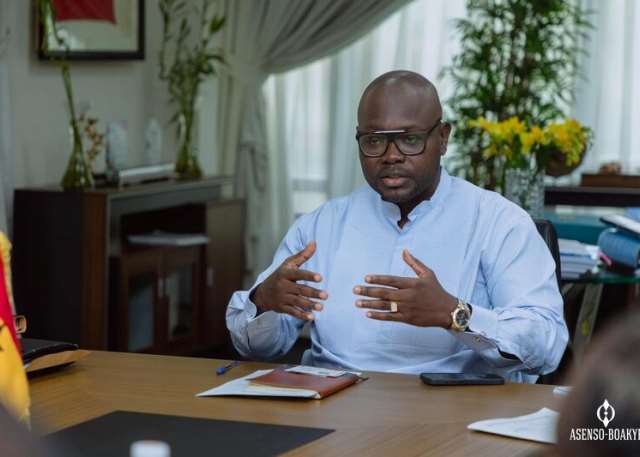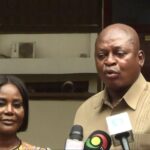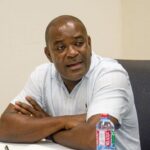Political discussion surrounding the beleaguered infrastructure project has heated up when former Deputy Chief of Staff Francis Asenso Boakye accused President John Mahama of falsifying information on the Ofankor–Nsawam Road Project. The disagreement started when Mahama questioned the finance arrangements for the 33-kilometre dual highway project during his site review on September 3.
The President voiced his annoyance at the escalating expenses, claiming that even though the project was financed, an additional GHC 78 million from Bank of Ghana reserves is needed to complete it. Strongly disputing these descriptions was Asenso Boakye, a former member of the Akufo-Addo administration, who maintained that the finance arrangement was transparent and well-documented from the start of the project.
“President Mahama’s comments are yet another unfortunate attempt to misrepresent well-established facts for political benefits,” Asenso Boakye stated, arguing that the initial financial agreement was appropriately organised and conveyed.
The former official said that the government obtained only a $200 million facility from Afreximbank to facilitate finance, but the project’s total contract value was $346.4 million. He stressed that this partial funding was always meant to cover only a fraction of the project expenditures, with the remaining amount coming from budgetary allocations made by the government.
“The truth is clear. The total contract sum for the project is $346.4 million. Out of this, the Government of Ghana secured a $200 million facility from Afreximbank to support financing, but that loan was never intended to cover the entire project cost,” Asenso Boakye emphasized. Enquiring as to whether Mahama had received a sufficient briefing on the project structure, the former deputy chief of staff recommended that transition documents given to the new administration should have made these financial arrangements clear. With frequent delays causing major annoyance for travellers and exposing more general issues in Ghana’s infrastructure development, the Ofankor–Nsawam road project has turned into a politically delicate topic.
Although financing shortages have caused the project’s initial completion deadline of July 2024 to be continually pushed back, the project formally started in July 2022. Continued annoyance with inherited infrastructure projects and their financial impact on his administration is reflected in Mahama’s most recent remarks. Notwithstanding the President’s commitment to finish the roadway by June 2026, the timeframe is still complicated by uncertainties around revenue sources. Calling for frank discussions on infrastructure matters, Asenso Boakye urged political leaders to refrain from what he called “distractions that could undermine public confidence in development projects.”
In contrast to his political stance, he underlined the necessity of openness and consistent advancement. “We urge all well-meaning Ghanaians to disregard these political distortions. This is not the time to play politics with infrastructure. It is a time for facts, transparency, and steady progress,” he said. The conflict brings to light the difficulties facing Ghana’s infrastructure sector, where major projects sometimes involve funding issues that can lead to inter-party conflict and span several political regimes. Because the Ofankor–Nsawam corridor connects Accra with the northern areas, its completion is crucial for both economic growth and the effectiveness of transportation.
However, attempts to collect additional finances required for completion may be complicated by the political controversies surrounding its sponsorship.






